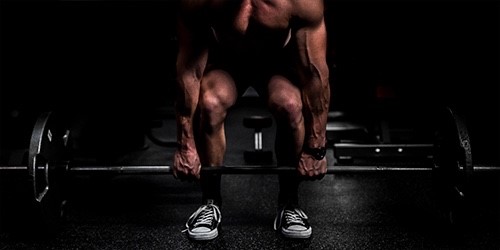How Anabolic Steroids Impair Fertility

Lifestyle factors play a big role when it comes to fertility. Drug use, including the misuse of steroids, significantly impacts sperm parameters making it harder to become pregnant.
What are anabolic steroids and how are they used?
Anabolic steroids are natural or synthetic versions of testosterone and they are sometimes prescribed to address hormone deficiencies or help some patients gain weight or muscle mass. But because testosterone increases muscle mass, anabolic steroids may be misused by bodybuilders to help build muscle, lower body fat percentage, or gain strength.
How anabolic steroids affect fertility
Sperm production & maturation:
Certain hormones help regulate the male reproductive system. Testosterone, gonadotropin-releasing hormone (GnRH), follicle-stimulating hormone (FSH), and luteinizing hormone (LH) are four key hormones that affect male fertility. A study that observed anabolic steroid use showed that intake of synthetic testosterone, like anabolic steroids, inhibits the secretion of GnRH, FSH, and LH by a mechanism called a negative feedback action. The body mistakes synthetic testosterone for more natural testosterone made by the testes, hence reducing its precursor hormones – GnRH, FSH, and LH. Men taking anabolic steroids saw quality parameters, such as sperm count and motility, fall dramatically.
In most cases, these negative effects on sperm production were temporary and could be reversed if the individual stopped taking anabolic steroids. Sperm quality parameters could be expected to normalize after 4 to 12 months of ending steroid use. However, in some cases, patients experienced up to 5 years of azoospermia, a medical condition where a male cannot produce any sperm.
Multiple studies conclude that using anabolic steroids significantly decreased quality sperm parameters. In one study of steroid-using bodybuilders, researchers found that only 17.7% of men with a history of using steroids had any morphologically normal sperm and only 7% had normal sperm counts. And another study that followed 20 male bodybuilders using anabolic steroids over a 2-year period found that decreased fertility was one of the most significant long-term adverse effects.
Testicular function:
Another long-term effect of chronic anabolic steroid misuse may be decreased testosterone production.
In a study that evaluated groups of three men—men who never used anabolic steroids, former anabolic steroid abusers, and current anabolic steroid misusers—it was found that anabolic steroid use has long-term effects on a male's ability to produce testosterone. Of the three groups, current users of anabolic steroids had the lowest testosterone levels, and former users' testosterone levels were notably lower than those of men who never took anabolic steroids.
These findings suggest that anabolic steroid misuse may lead to atrophy (wasting) of the testes and permanently impair testicular function, known as “steroid-induced hypogonadism.”
Other side effects of anabolic steroids
Along with fertility, anabolic steroid abuse also increases the risk for circulatory disorders such as high blood pressure, stroke, and heart attacks and can create hormonal imbalances causing enlarged breast tissue, cancers, plus baldness, and acne amongst others.
Many who misuse anabolic steroids are aware of the dangers and try "cycling," "stacking," or "pyramiding" to try to bypass side effects, or they stop entirely for six months to get pregnant and then restart. However, no scientific evidence proves any of these methods help reduce the short-term and long-term negative side effects—including the detrimental effect on sperm quality parameters and overall fertility.
Anabolic steroids are best avoided entirely if you are trying to get pregnant.
For advice on the best diet and (healthy!) supplements check our article on how to improve sperm health.
Sources
- https://www.givelegacy.com/resources/steroids-and-male-fertility/Steroids and male fertility
- https://www.verywellmind.com/steroids-abuse-faq-69354
- https://pubmed.ncbi.nlm.nih.gov/11270623/
- https://www.ncbi.nlm.nih.gov/pmc/articles/PMC4988681/
- http://alltesticles.com/how-do-anabolic-steroids-cause-infertility-in-men


